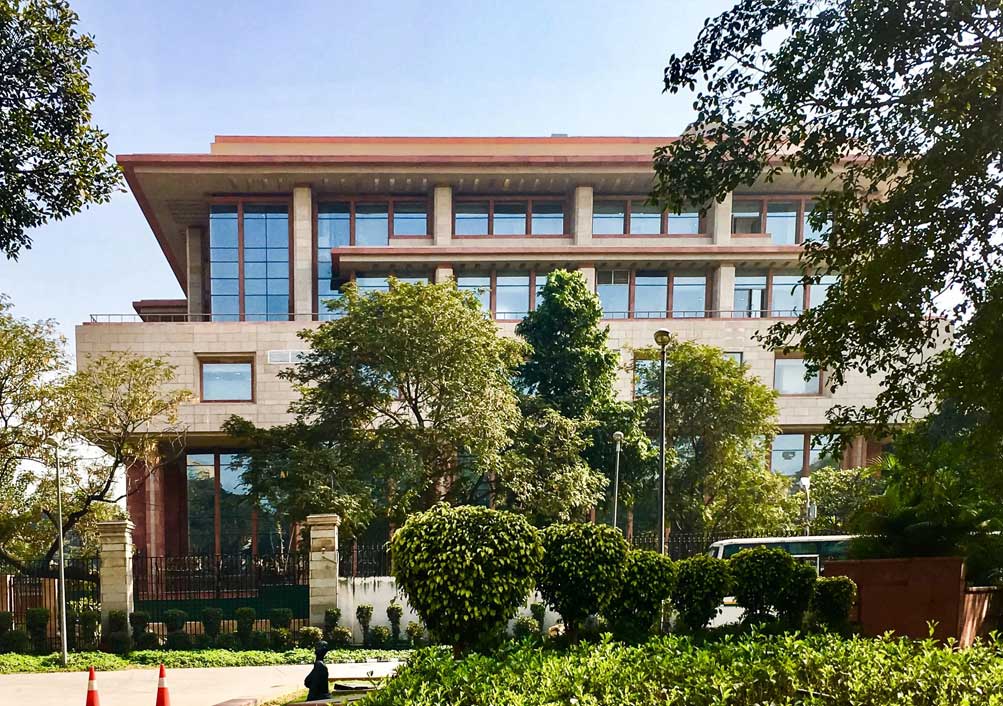In CRL.M.C. 981/2023 -DEL HC- Delhi High Court dismisses petition to quash cheque dishonour complaint, slaps petitioners with Rs. 25,000 costs
Justice Saurabh Banerjee [20-11-2023]

Read Order: M/s Samkia Enterprises & Ors V. Ranjeet Begwani
Chahat Varma
New Delhi, November 20, 2023: The Delhi High Court has dismissed a petition filed by two individuals seeking the quashing of a complaint case filed against them under Section 138 of the Negotiable Instruments Act, 1881 (NI Act). The Court held that the complaint was maintainable in the eyes of the law and that the petitioners' claims lacked merit.
Briefly stated, on 14.12.2016, petitioner nos. 2 and 3/accused had issued four post-dated cheques collectively amounting to Rs.16,50,000 to the respondent/complainant, which were later dishonoured.
The petitioners' counsel contended that the respondent deliberately omitted mentioning the dishonour of the first cheque in both the Legal Notice and the complaint. Arguing that the Legal Notice for the first cheque was time-barred, the counsel asserted that the common Legal Notice for all four cheques did not meet the requirements of Section 138 of the NI Act. Consequently, the counsel sought the quashing of the complaint.
The single-judge bench of Justice Saurabh Banerjee noted that while the first cheque issued on 15.12.2016 was dishonoured on 23.12.2016, making the Legal Notice dated 17.04.2017 time-barred for it, all the subsequent three cheques issued on 15.01.2017, 15.02.2017, and 15.03.2017 were dishonoured on 24.03.2017. Consequently, the Legal Notice dated 17.04.2017 for these three cheques fell within the prescribed statutory period. As a result, the bench concluded that the said Legal Notice was valid, and the subject complaint concerning the three cheques was also within the statutory time limit, rendering it valid.
The bench referred to the judgment rendered in Suman Sethi v. Ajay K. Churiwal [LQ/SC/2000/236], wherein the court had established the principle that a notice must be read as a whole.
Thus, in the present case, the bench concluded that the Legal Notice dated 17.04.2017, issued by the respondent, explicitly provided specific details regarding the dates and amounts of all four respective cheques involved. The notice was to be read as a whole, and, the inclusion of one cheque for which the Legal Notice was time-barred did not render the notice invalid for the three other cheques within the prescribed time frame.
Considering the above, and particularly because the respondent did not make an omnibus demand in the Legal Notice within the stipulated time period, and no illegal amount was demanded, the bench concluded that, in the facts of the present case, the subject complaint was inherently maintainable in the eyes of the law.
The bench also noted that despite the petitioners' claim of not receiving the Legal Notice, they relied on it only after the issuance of summons by the MM and the framing of notice under Section 251 Cr.P.C. The bench considered this raised issue as belated and inappropriate at this stage, stating that the absence of receipt of the Legal Notice made the summons issued by the MM the statutory notice.
Consequently, considering the factual matrix and the current legal position, the Court held that the present petition, which sought the quashing of the complaint case, filed by the complainant against the accused under Section 138 read with Section 141 of the NI Act, pending before the MM, lacked merit and should be dismissed.
Accordingly, the present petition was dismissed, and due to the behaviour of the petitioners, they were directed to pay a nominal cost of Rs.25,000 (Rupees Twenty-Five Thousand Only) to the respondent within two weeks.Top of Form
Sign up for our weekly newsletter to stay up to date on our product, events featured blog, special offer and all of the exciting things that take place here at Legitquest.




Add a Comment